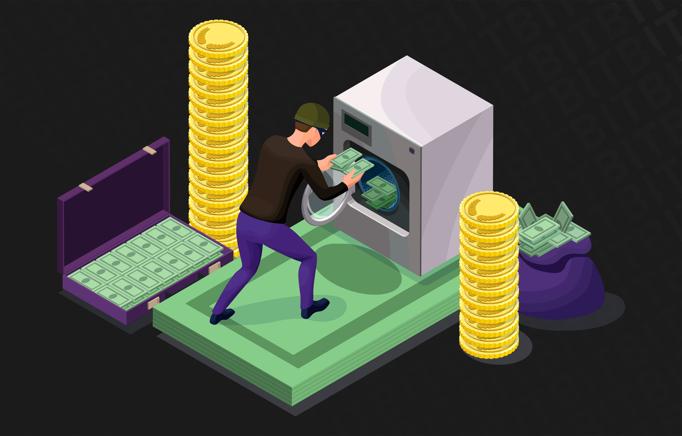What is money laundering
Crypto for Beginners
Other articles
The purpose of a substantial proportion of illegal crimes is to make money for the person or group who commits the act. Money laundering is the processing of unlawful proceeds in order to conceal their illegal origin. This procedure is crucial because it allows the criminal to enjoy the gains without jeopardizing their source.
Illegal arms sales, smuggling, and organized crime operations such as drug trafficking and prostitution rings may produce massive sums of money. Embezzlement, insider trading, bribery, and computer fraud schemes can also result in huge profits, creating an incentive to "legitimize" the ill-gotten earnings through money laundering.
When an illegal operation generates significant earnings, the individual or group engaged must find a means to keep the cash under control without drawing attention to the underlying action or the individuals involved. Criminals do this by concealing the source, altering the form, or relocating the cash to a location where they are less likely to attract notice.
In response to growing concern about money laundering, the G-7 Summit in Paris in 1989 established the Financial Action Task Force on Money Laundering (FATF) to develop a coordinated international response. One of the FATF's initial objectives was to create 40 Recommendations outlining the steps that national governments should follow to adopt successful anti-money laundering programs.
The launderer inserts his unlawful riches into the financial system at the initial - or placement - stage of money laundering. This can be accomplished by dividing large quantities of cash into smaller sums that are then placed directly into a bank account, or by purchasing a series of monetary instruments (cheques, money orders, etc.) that are subsequently collected and transferred into accounts at another location.
The second – or layering – stage occurs once the money have entered the financial system. During this stage, the launderer converts or moves the monies in order to separate them from their source. The monies may be channelled through the purchase and sale of financial items, or the launderer could simply transfer the cash through a succession of accounts at different banks throughout the world. This use of widely dispersed accounts for laundering is particularly common in nations that refuse to cooperate with anti-money laundering investigations. In other cases, the launderer may disguise the transfers as payments for products or services, giving them the appearance of legitimacy.
After successfully processing his unlawful income through the first two stages, the launderer proceeds to the third stage, integration, in which the money is re-introduced into the legitimate economy. The money launderer may decide to invest it in real estate, luxury items, or business ventures.


